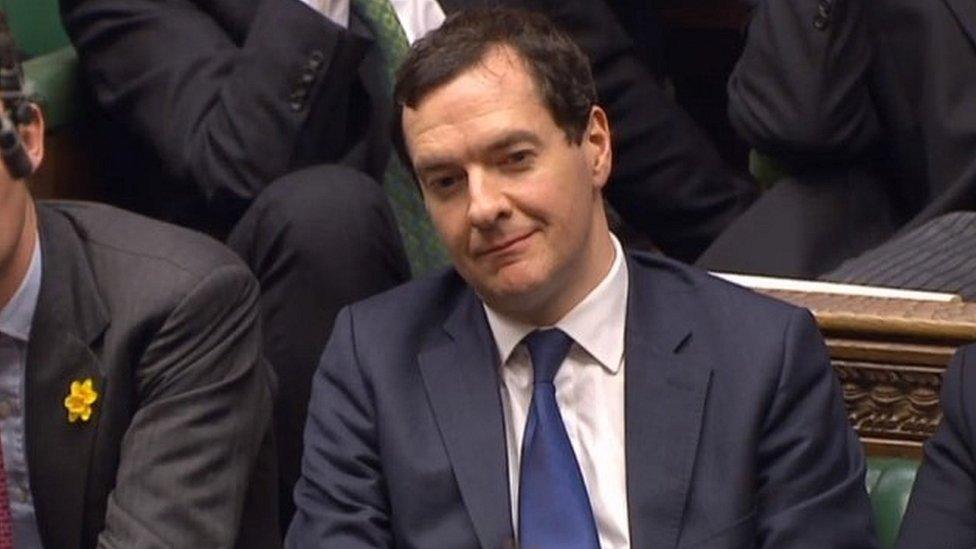George Osborne defends newspaper job in Commons
- Published

George Osborne has said Parliament is "enhanced" by having MPs with "different experiences" as he defended his new job as Evening Standard editor.
The ex-chancellor was speaking in the Commons in response to an urgent question on the issue from Labour,
Shadow minister Andrew Gwynne said an MP holding other "time consuming" roles risked undermining "public trust".
Ministers said Mr Osborne had consulted an independent watchdog about the role and awaited its verdict.
Labour said Mr Osborne - the MP for Tatton - appeared to be in breach of the ministerial code for not consulting the Advisory Committee on Business Appointments watchdog before taking on the high-profile role, in addition to a number of other highly-paid advisory positions.
Mr Gwynne told MPs that it was hard to defend Mr Osborne holding down several "time-consuming" roles which had a "deep overlap" with his responsibilities as an MP and former minister, saying it risked throwing up "conflicts of interest".
Sought advice about role
But Mr Osborne, who has insisted he can edit the paper while remaining an MP, said he believed having MPs who could draw on outside experiences was good for Parliament as it enabled former ministers, in particular, to "continuing to contribute to the decisions we make".
He said was interested to hear what MPs had to say on the matter.
Cabinet Office minister Ben Gummer said Mr Osborne had sought advice from the watchdog several days before the appointment was announced and their advice would be published in due course.
He said it would be wrong of him to prejudice their findings, saying the government "did not have a view" on the matter at this stage. He told MPs there were "balanced" arguments for and against MPs having second jobs.
And former education secretary Michael Gove said the proprietors of newspapers should have the right to pick whoever they saw best fit to edit their papers "without the interference of the executive".
- Published19 March 2017
- Published17 March 2017